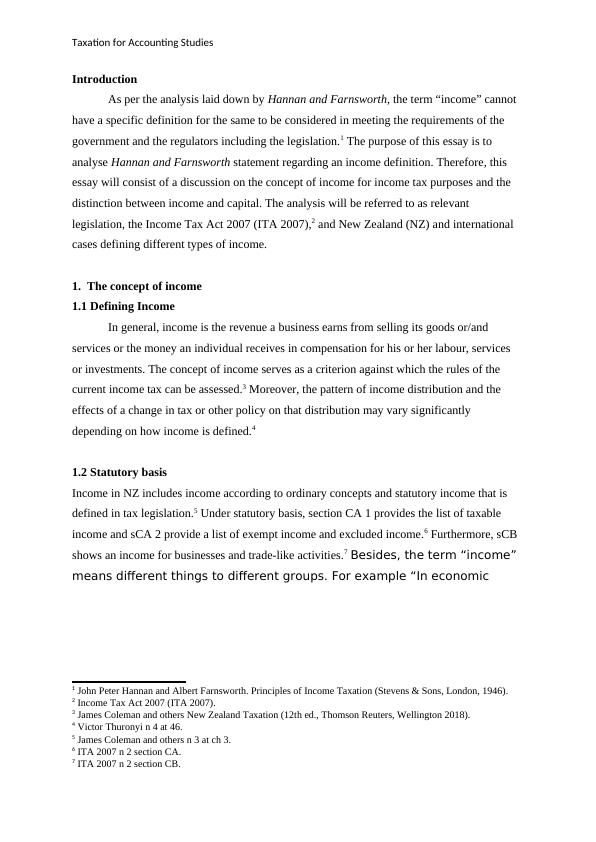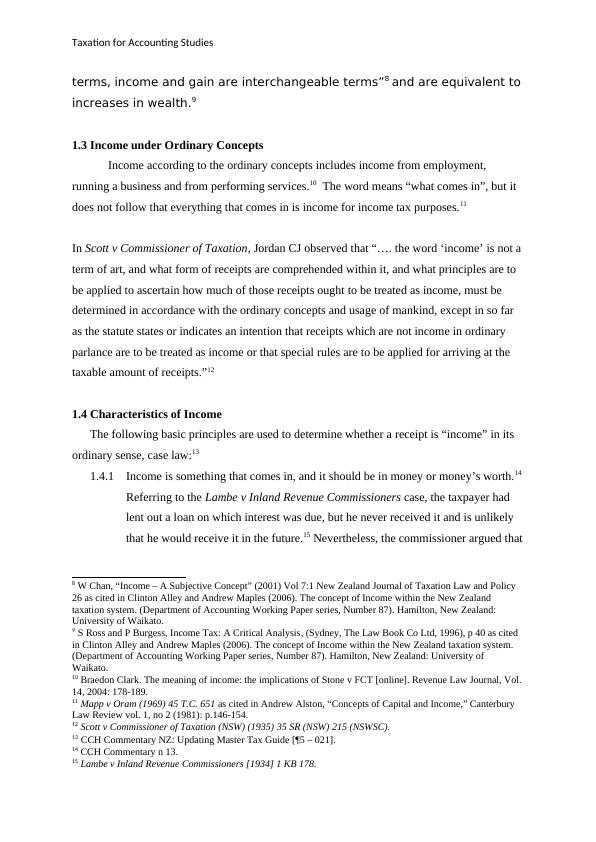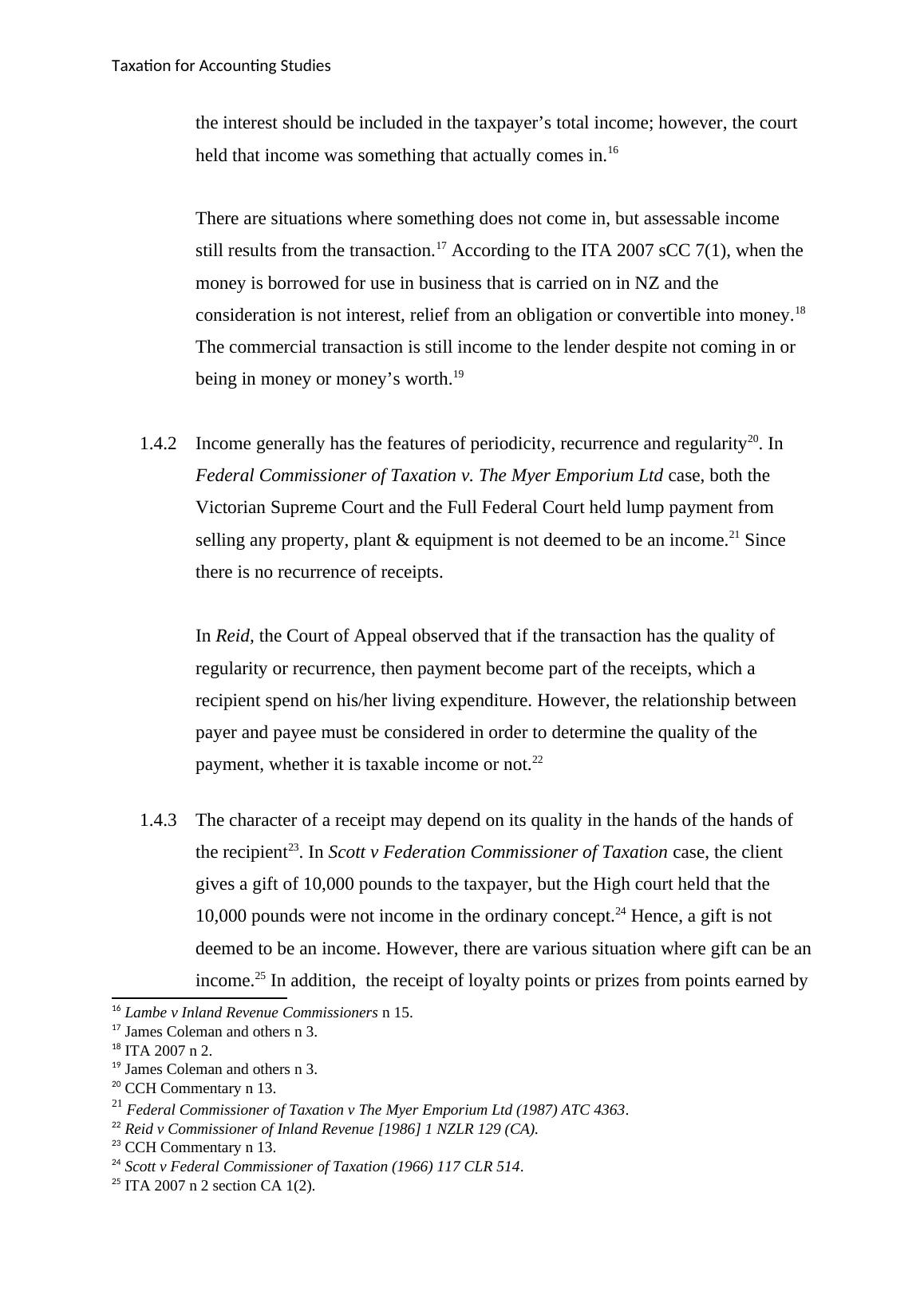Taxation for Accounting Studies
Analyzing the concept of income for income tax purposes and the distinction between income and capital based on the analysis by Hannan and Farnsworth.
9 Pages3244 Words81 Views
Added on 2023-04-21
About This Document
This essay discusses the concept of income and the distinction between income and capital in taxation for accounting studies. It explores the definition of income, statutory basis, income under ordinary concepts, and characteristics of income. The essay also covers income sources such as income from individuals, income from business, and income from property. Additionally, it delves into the income/capital distinction and the fruit tree analogy. Overall, this essay provides a comprehensive understanding of taxation for accounting studies.
Taxation for Accounting Studies
Analyzing the concept of income for income tax purposes and the distinction between income and capital based on the analysis by Hannan and Farnsworth.
Added on 2023-04-21
ShareRelated Documents
End of preview
Want to access all the pages? Upload your documents or become a member.
Taxation for Accounting Studies
|8
|3380
|171
New Zealand Tax: Tax Benefits vs Tax Avoidance
|13
|4584
|425
Taxation Law: Assessable Income, Accrual Basis, Tax Avoidance, Joint Ownership
|13
|3373
|251
Taxation Law: Understanding Assessable Income and Allowable Deductions
|12
|2910
|181
Assignment on Taxation Law PDF
|22
|5090
|23
Taxation Law | Assignment | Answers
|11
|2600
|22



